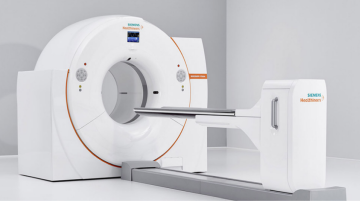Quest Diagnostics’ blood test has been shown to potentially reduce the need for PET imaging of patients with Alzheimer’s disease
Alzheimer’s disease (AD), characterized by cognitive decline and the presence of beta-amyloid (Aβ) plaques and neurofibrillary tangles in the brain, presents diagnostic obstacles. The incidence rate of AD increases with age, affecting approximately 10% of those over 65 and rising to 32% in individuals over 85. Globally, around 50 million people suffer from AD. This condition significantly impacts patients’ quality of life and poses substantial psychological, financial, and social burdens on their families.

While amyloid positron emission tomography (PET) imaging is a well-established diagnostic tool for AD, it is costly, invasive, and requires specialized equipment, unlike blood tests. However, recent study results indicate that a new amyloid blood test could decrease the dependence on PET imaging for certain patients with mild cognitive impairments, allowing for a focus on non-AD causes and thereby broadening access to quality assessment while lowering healthcare expenses.

In what is considered one of the largest published studies, researchers assessed the effectiveness of amyloid blood testing in diagnosing Alzheimer’s disease (AD). The study analyzed 6,192 anonymized lab results from patients who underwent Quest Diagnostics’ (Secaucus, NJ, USA) AD-Detect Beta-amyloid ratio test AΒ42/40. This test measures the ratio of amyloid beta 42 and 40 proteins (Aβ42/40) in both the brain and circulating in the bloodstream. The clinical accuracy of the Quest test was validated against 250 samples from individuals who also had amyloid PET scans and demographic data. Furthermore, the study investigated the blood test’s performance across different interpretive ranges based on varying cutoffs or levels of amyloid in the blood.
The study’s findings suggest that the Quest test, which utilizes highly sensitive mass spectrometry to analyze amyloid protein levels, could effectively indicate when AD is unlikely to be the cause of a patient’s mild cognitive impairment. The analysis revealed that up to 99% of patients who tested negative for amyloid proteins in the brain via PET imaging would likely also test negative using the Quest blood test. This predictive capability could result in a 40% reduction in the necessity for PET brain scans, offering significant potential healthcare cost savings for these patients.
“These findings demonstrate that AΒ42/40 testing is highly beneficial in detecting amyloid pathology in populations with a high prevalence of AD, particularly among older individuals,” stated Michael Racke, MD, Medical Director of Neurology at Quest Diagnostics. “We believe the relatively low specificity reflects the limitations of PET scans in identifying the earliest stages of AD pathology and anticipate that many of these patients will eventually test PET-positive as the disease progresses.”